Hello beautiful human,
We finally found a table for the writing corner in my partner’s house. Unexpectedly—we were looking for something else entirely and isn’t that usually the way of it. Be open to the gift when it arrives. It’s a solid wood table with graceful spindle legs (and a fifth one—somehow important to me). Four leaves we won’t use for the moment. A spring grass green paint brushed around the edges and corners of all the surfaces – almost as though the table emerged out of some wild and eternal green tangle… or (and) that same green is just about to swallow it back. It looks magical if I tilt my head in just the right direction, and so I knew it must be the right one.
Driving through the rural landscape as we brought it back with us to Madison, rural Wisconsin put on its spring colors. The trees are just beginning to leaf out and blossom; the fields awaken. Such faint traces of color and the heart leaps at each instance, so ready are we for the springing forth. Living in a seasonal climate we map our lives onto the seasons, we can’t help it. Spring is a time for youth and adventure. Our young people blossom and we rejoice to see it. The fruitful summer of life has us partnering, settling into domesticity, bringing forth children. Then autumn comes with mellow reflection and a paring back, a drying out of sorts. Every writer knows this. We feel the turning of the wheel so deeply it becomes cliché. A familiar story.
But you know how I feel about old stories and the new table in the back of the van has another message. It reminds me these too-easy metaphors will not do. Spring is not only for the young. The apple tree at my childhood home is so old no one living can count her years, and yet she flowers forth each spring, magnificent. Like that tree, my life insists on more complexity, for I would like to think I am getting ready for such a flowering myself after a years-long winter of grief and confusion. Things are happening. I bought new clothes a few days ago. I wore mascara for the first time in decades. I just bought myself a pilates machine. Small signs and indicators. Perhaps I really am emerging into Chapter Next.
I have to laugh and applaud myself all at once for the exercise machine. The first day, it was all I could do to stay on the thing for thirty seconds. Day two, I told myself, One minute. I’m taking very small steps and in former years this would have easily discouraged me and I’d have quit… but as my partner said to me driving home in the van (and he’s a personal trainer so he would know) You have to feel weak before you can feel strong.
Oh, that’s good, I said. I love that. I’m saving it. I rummaged in my overstuffed purse to find an old envelope and a pen to write it down.
We have to feel weak before we can feel strong. Put another way…we don’t feel our weakness until we start to try to prepare for something new: greater strength, or flexibility, endurance. Life’s next chapter.
Inertia and habit protect us from feeling uncomfortable, from acknowledging we’re weak in places. Fear will also keep us running in ruts.
But feeling comfortable and unchallenged isn’t the same as being strong.
In a creative life, habit, inertia and fear take a back seat. They have to. There are so many swerves, so many small or large digressions, alleyways and scenic overlooks. Some of them lead to whole new journeys unlooked for and unexpected. Others turn out to be nothing more than a passing whim, fleeting like a butterfly that lands on a soda can on the picnic table. We see it there, pausing a minute to sample the sugary cola left around the rim. It uncurls its long threadlike proboscis as its wings slowly open and close, once, twice, three times…then it flies away off fluttering and we are left with the miniscule miracle, another one among so many such.
Here's a recent butterfly-like swerve: I found a free online workshop in perfumery and for whatever reason it tickled my possibility zone. I never ignore those feelings. I watched entirely through all three lessons, taking notes. I bought a handful of essential oils to try my hand at creating my own signature scents. I made exactly three in two days because life is after all something of a magical story when we decide we will write it that way:
The first smells like summer fields and freedom, buoyant and blossomy.
The second smells like dusty bookshops and maps to invisible worlds, gleaming with arcane secrets and adventure.
The third, most wondrous, has just as many ingredients as the first two yet smells like nothing at all, a trace so faint only that butterfly from the paragraph above would be able to follow the trailing signature.
I like the idea of natural perfumery. I like the sensory indulgence and luxury of it, the permission to experience pleasure. There’s a discernment of scent required, a careful attuning of sense that I enjoy in the same way I enjoy distinguishing paint hues and shades, or differentiating the sound tones emerging from different speakers. Perfumery allows for playful invention and love for the body, the flesh, the animal warmth of skin and acknowledgment and appreciation of how that warmth effects the scent trace of any oil. I like the idea that scents are like notes—bass, heart and high, and the combinations are scent symphonies in a bottle. I like perfume’s similarity to wine, how a scent will grow, deepen, over months as the oils mingle, quiet in their cupboard. I like glass bottles and wooden cabinets, the visual pleasures of a perfumer’s organ, as it is called. And I resonate and thrill with the connections to the natural world. These oils are not made in a chemistry lab they come from somewhere and with time and patience I could learn to distill and press and extract my own.
I could. And (or) in the swervy, nonlinear delight of creative curiosity, the entire perfumery exercise may have been simply intended to bring a single book to my attention. A book I would never have encountered if I hadn’t been researching perfumery. This is how magic works, I think: through delight, distraction and intention in equal measure.
The Art of Perfumery, which sits on my desk as I write this, was originally published in London in 1857 by publishers Lindsay and Blakeston. It was written by a man with the wonderfully delicious and unbelievable name of G. W. Septimus Piesse. (I insist the last name must be pronounced “pease.” You can play around with alternatives but speak it out loud and you will hear that I am right.)
Surely we live in a magical world when I sit in Wisconsin in April, 2025, and discover I hold in my hand The Art of Perfumery, written in 1857 by G. W. Septimus Piesse and published by Lindsay and Blakeston?
At best, I am an unserious student of Piesse, who writes exactly as you might expect he would. Unserious, yes, but a student just the same, for how could I deny myself the pleasure of this sentence, found when I opened at random to a chapter on the rose:
“The queen of the garden loses not its diadem in the perfuming world.”
Reader, I swoon. Oh G. W., oh Septimus, you take your work and world so seriously. You have no idea that in 2025, a middle-aged woman in a small town in Wisconsin will be walking around her house, smiling to herself and repeating as she puts away the silverware, “The queen of the garden loses not her diadem in the perfuming world.”
It’s a good reminder and a mantra arrived more or less direct from 1857. Surely these are words for our times. For it is a perfuming world, my friends, squeezing, pressing, heating and distilling, extracting what it can of us. Let us lose not our diadems under the pressures of 2025. Let us remain true to our original character as the world insists on our contractions and mutations. For surely we do see just whose diadems are tumbling, and tarnished. Let ours not be among them.
With such wisdom to discover, I had to keep reading. G. W. Septimus Piesse might as well have been writing about Mars; this is a world now lost to us even if the names are vaguely familiar—
“Roses are cultivated to a large extent in England, near Mitcham, in Surrey, for perfumers’ use to make rose-water. In the season when successive crops can be got, which is about the end of June, or the early part of July, they are gathered as soon as the dew is off, and sent to town in sacks. When they arrive, they are immediately spread out upon a cool floor: otherwise, if left in a heap, they heat to such an extent, in two or three hours, as to be quite spoiled. There is no organic matter which so rapidly absorbs oxygen and becomes heated spontaneously, as a mass of freshly gathered roses.”
I put the book down again, stunned. Flabbergasted to think of it: roses absorb more oxygen and overheat faster than any other flower or leaf… Can this be true? Have the poets and lovers known all along? Oh, but suddenly I am that gathered mass of freshly gathered roses, heating spontaneously, and longing to spill myself over the cool floor. Aren’t you? Don’t we know that sensation and haven’t we felt that way? Yes, let it be spring—let it be late June or early July once more and let the crops be successive—
One hundred and sixty-eight years later, the description of floral agricultural practices near Mitcham, in Surrey, is exact and marvelous. Except for such passages, we have lost those sacks of spilling roses, those cool floors. This is the wealth which only books convey.
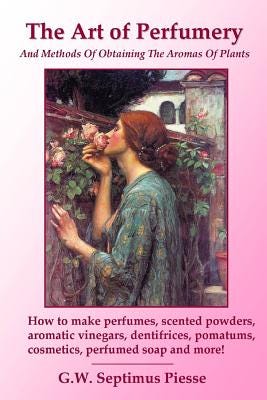
We have to feel weak before we feel strong. The joys of Septimus Piesse aside, I’m having a weak day. I’ve had a lot of those since getting divorced and moving to this tiny town between two rivers. I have to call on my courage, resilience and creativity daily just to face the blank page, not to mention trying to get through the hours without sinking into depression and discouragement. (To become discouraged is to become dis-couraged. Let me gird my heart, once again, and remember my lion roar.)
I have found that the only way to turn weakness to strength on these days and recover my roar is to acknowledge and be candid about the very fact of them. I’m having a bit of a hard day. Maybe a few others of us are too. It’s okay. If we feel weak, it probably means we’re stretching into new directions and someday we’ll know ourselves stronger once again.

The wind has come up. It’s going to be a warm day and I expect the bleeding hearts will be blooming by the end of it. Reader, I exist so lightly in the world. My name writ in dandelion puffs and milkweed seeds, carried only on these words dispersed through air, to land, perhaps, as lightly as that butterfly on the soda can, sipping at sweetness.
xo
S
I believe our world needs new stories. what if those stories lie curled within us like seeds? This is An Inviting Space to experience where and how we might discover, recover and nurture the secret, magical gardens of soul day by day. Starting where we are, as we are.
(Not quite ready to subscribe, but want to show a little gratitude for this post? buy me a coffee.)
A Celebration Corner for sharing the Good Goodies
May 16 is International Listening Day. How shall we celebrate and mark the occasion?
My friend and mentor, the poet Fabu Phillis Carter will be reading poems celebrating jazz pianist and composer Mary Lou Williams at the Kennedy Center on May 10th at 6 PM Eastern Daylight Time/ 5 PM Central/ 3 PM Pacific. You can watch the livestream and help fight the erasure of Black artists and artistry in the United States.
Your support is welcome, and your attention and time are true gifts. Thank you.

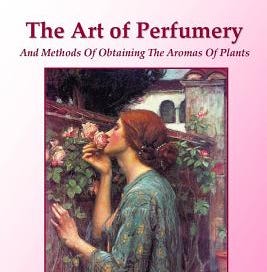








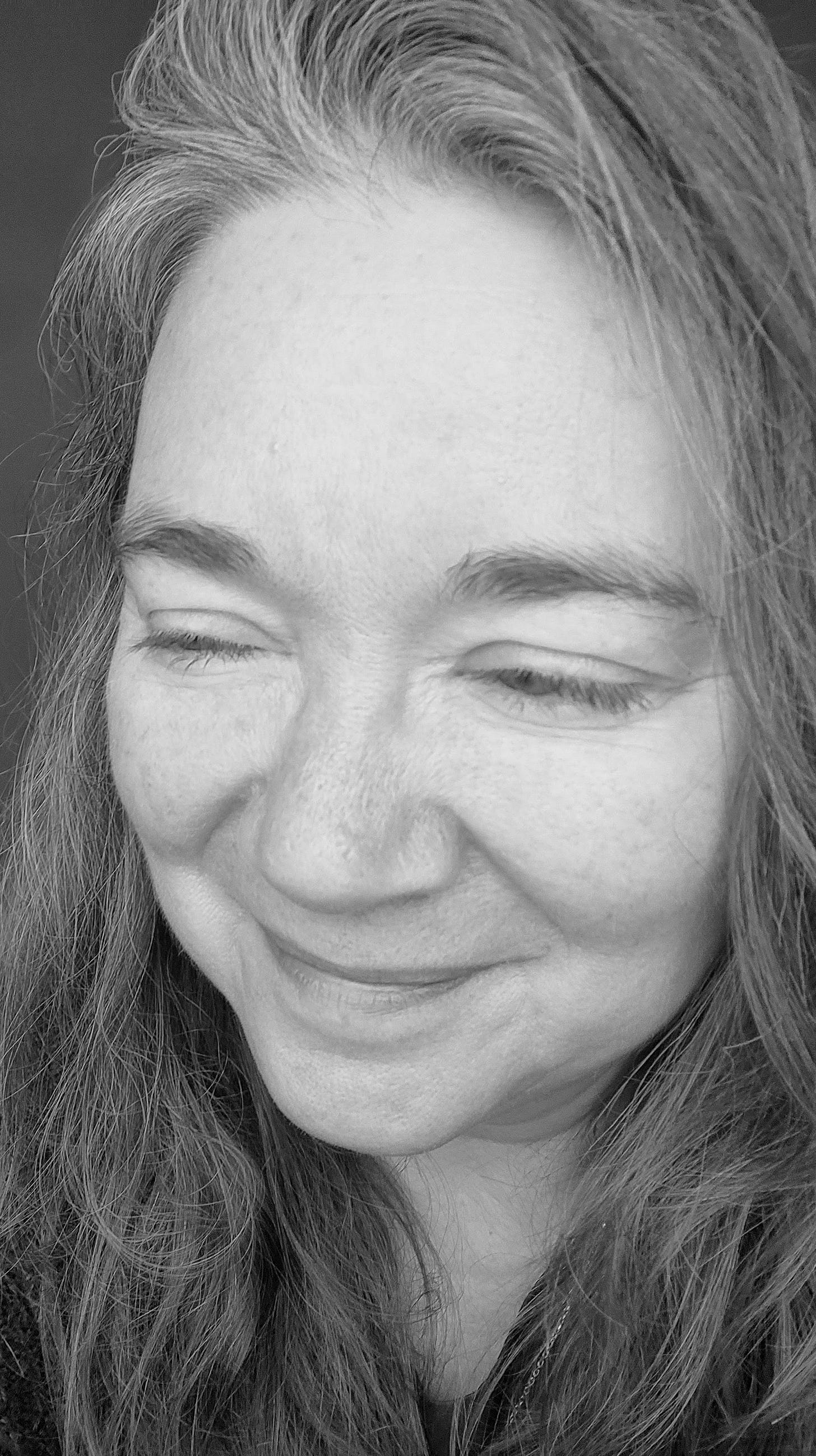
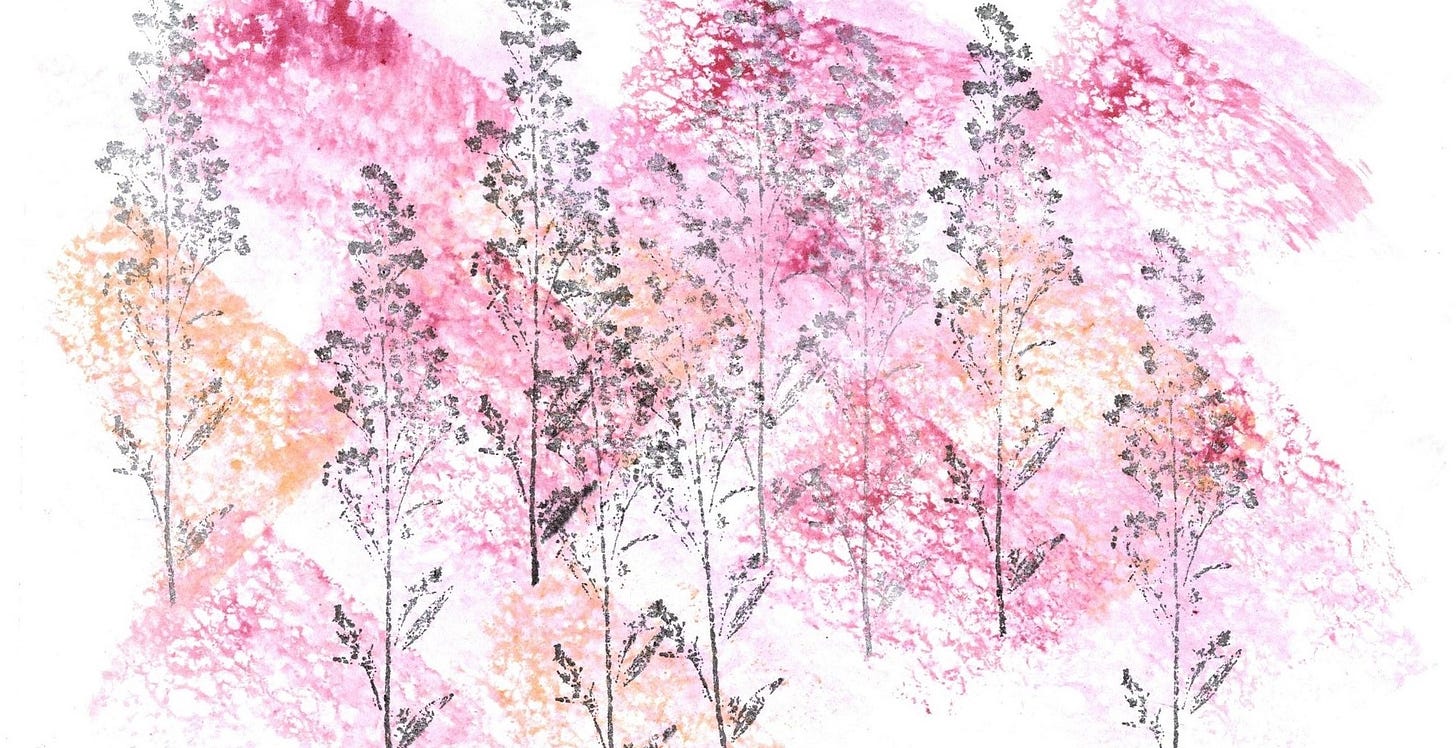
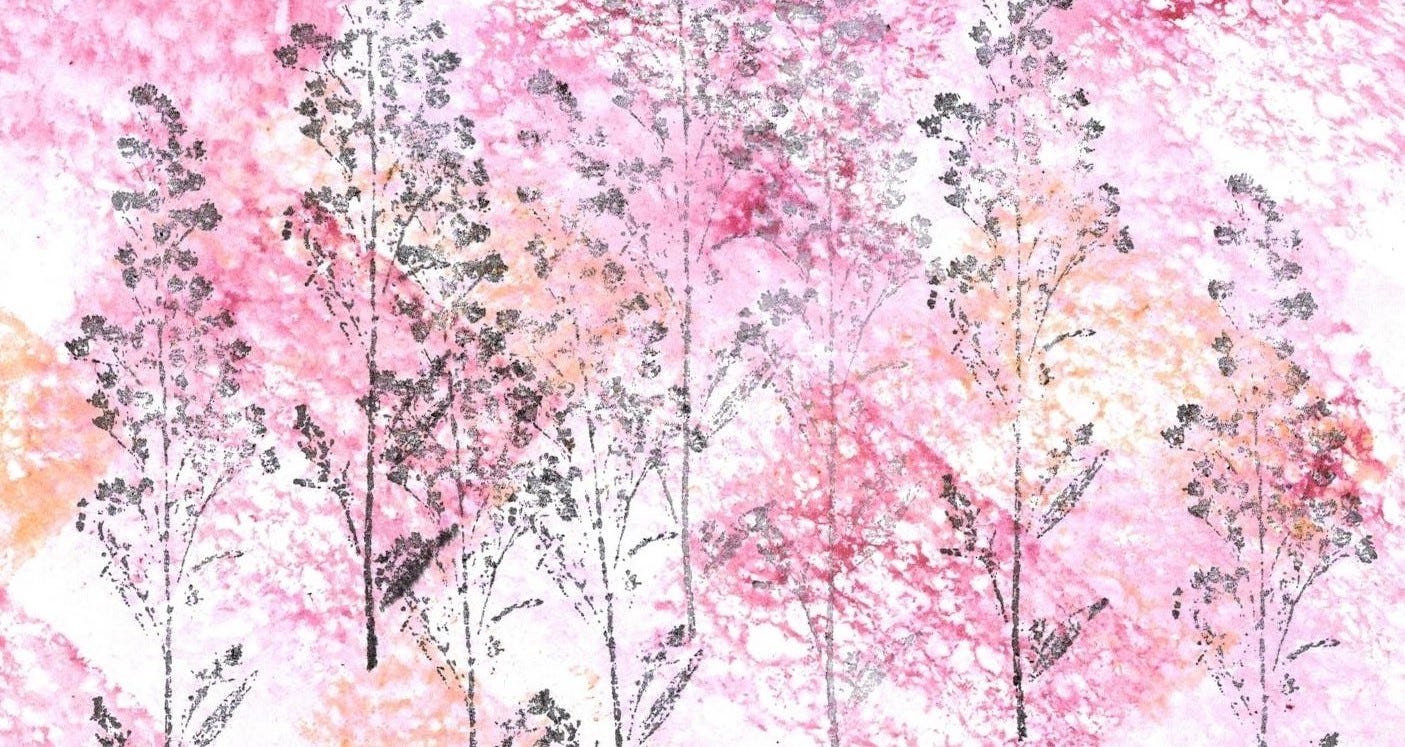


Thank you, Sarah, for this wonderful treasure to my day.